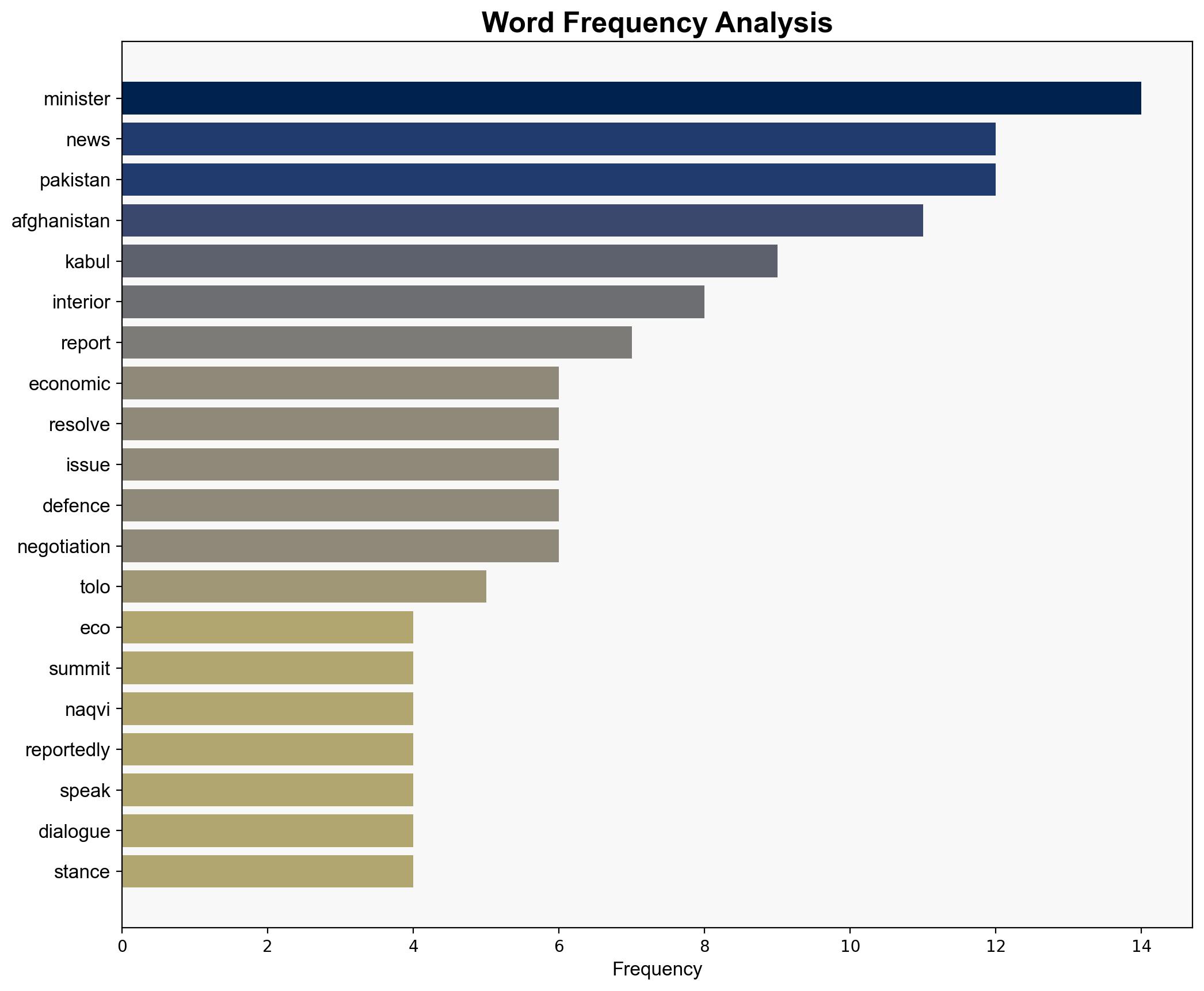Pakistan officials lack decisiveness in resolving conflict with Afghanistan – The Times of India
Published on: 2025-10-30
Intelligence Report: Pakistan officials lack decisiveness in resolving conflict with Afghanistan – The Times of India
1. BLUF (Bottom Line Up Front)
The most supported hypothesis is that internal divisions within Pakistan’s leadership are hindering a unified approach to resolving tensions with Afghanistan. This lack of cohesion could exacerbate regional instability. Confidence level: Moderate. Recommended action: Encourage diplomatic engagement and mediation efforts by neutral parties to foster a unified stance within Pakistan and facilitate dialogue with Afghanistan.
2. Competing Hypotheses
1. **Internal Division Hypothesis**: The contrasting statements and approaches of Pakistan’s interior and defense ministers indicate significant internal divisions, which prevent a coherent strategy towards Afghanistan.
2. **Strategic Posturing Hypothesis**: The differing tones of Pakistani officials are a deliberate strategy to maintain flexibility in negotiations, allowing Pakistan to adapt its stance based on Afghanistan’s responses and international mediation efforts.
3. Key Assumptions and Red Flags
– **Assumptions**: The internal division hypothesis assumes that the conflicting statements are genuine and not a coordinated strategy. The strategic posturing hypothesis assumes a high level of strategic coordination within Pakistan’s government.
– **Red Flags**: The lack of a unified public stance could be a deception tactic. The absence of concrete outcomes from recent dialogues suggests potential gaps in the intelligence.
4. Implications and Strategic Risks
– **Regional Instability**: Continued internal discord in Pakistan could lead to inconsistent policies, increasing the risk of miscalculations and escalation with Afghanistan.
– **Geopolitical Tensions**: The involvement of Iran and Turkey as mediators introduces additional geopolitical dynamics, potentially complicating bilateral relations.
– **Economic Impact**: Prolonged tensions could disrupt regional trade and economic cooperation, particularly affecting border regions.
5. Recommendations and Outlook
- Facilitate third-party mediation to bridge internal divisions within Pakistan’s leadership.
- Encourage confidence-building measures between Pakistan and Afghanistan to reduce immediate tensions.
- Scenario Projections:
- Best Case: Successful mediation leads to a unified Pakistani strategy and improved bilateral relations.
- Worst Case: Internal divisions deepen, leading to increased border clashes and regional instability.
- Most Likely: Continued diplomatic efforts with intermittent progress, but no immediate resolution.
6. Key Individuals and Entities
– Mohsin Naqvi
– Khawaja Asif
– Najib Rahman Shamal
– Masoud Pezeshkian
– Stephane Dujarric
7. Thematic Tags
national security threats, regional focus, diplomatic mediation, geopolitical dynamics





